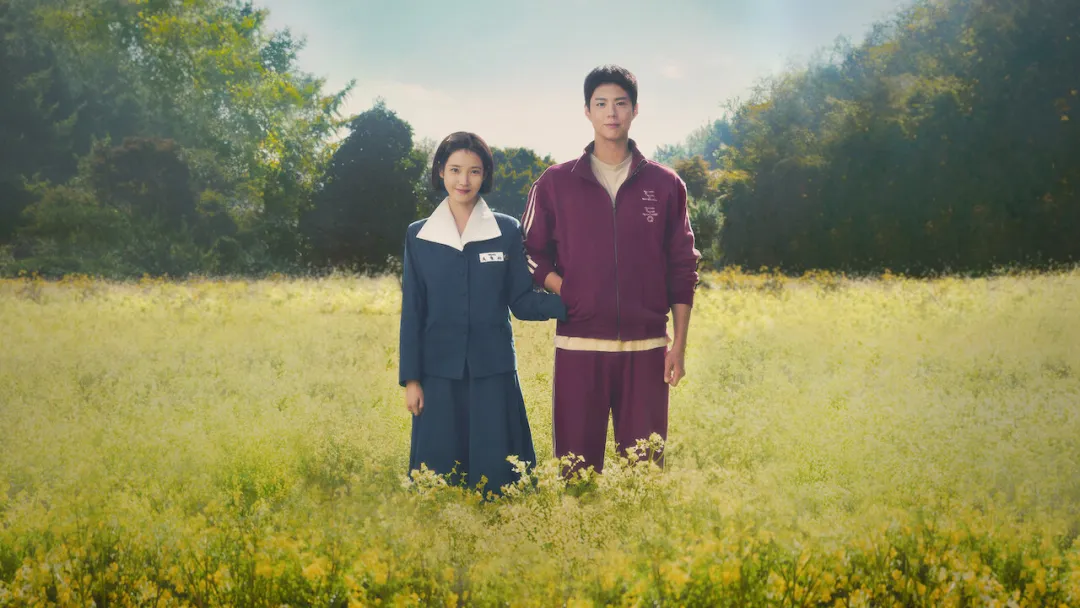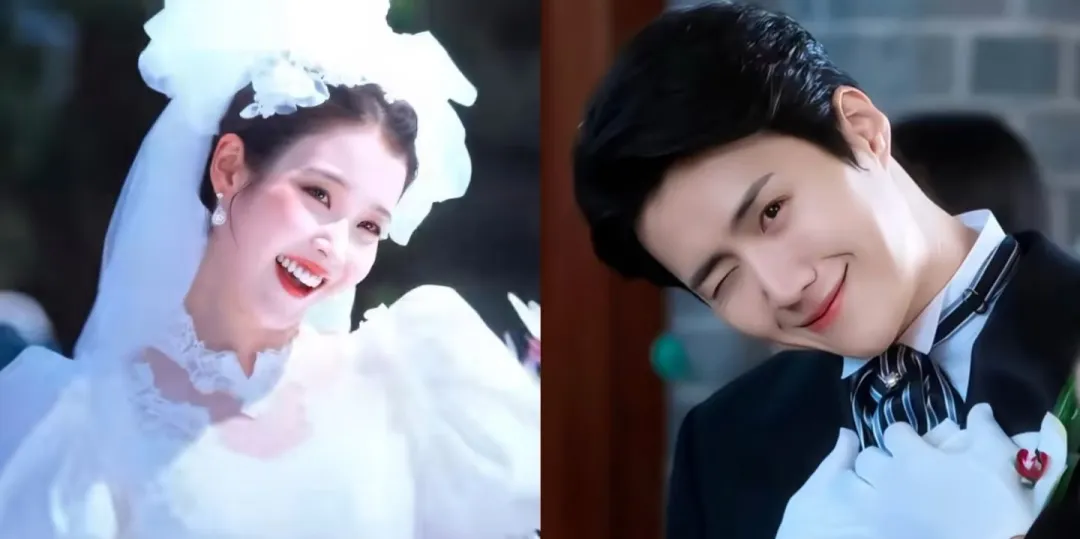When Life Gives You Tangerines (2025)
**Why the Hit Korean Drama *When Life gives you Tangerines* Strikes Such a Chord**

Director Kim Won-seok has helmed some of South Korea’s most critically acclaimed and emotionally resonant dramas. He was the creative force behind the 2018 hit *My Mister*, starring IU and Lee Sun-kyun; the 2016 drama *Signal*, starring Lee Je-hoon, Kim Hye-soo, and Cho Jin-woong; and the 2014 series *Misaeng*, led by Im Si-wan and Kang Ha-neul. One of his earlier works, the 2010 drama *Sungkyunkwan Scandal*, helped launch the careers of Park Min-young, Song Joong-ki, and Yoo Ah-in. So when Kim signed on to direct *When Life Gives You Tangerines*, expectations were sky-high. The series became another hit in his portfolio, earning multiple nominations at the 2025 Baeksang Arts Awards, including Best Drama, Best Director, Best Screenplay, Best Actor, Best Actress, and Best Supporting Actress.
Kim’s formula for success in Korean dramas is surprisingly simple: he picks projects he genuinely cares about and is eager to collaborate with those around him.
“Story and characters are both important, but I focus more on the characters,” Kim said. “I’m drawn to stories where the characters are vivid, the plot is engaging, and the humor is seamlessly woven in. If those elements are there, I’m open to any genre.”
*When Life Gives You Tangerines* centers on two key characters: the resilient and sharp Ae-seon, played first by IU and later by Moon So-ri, and the loyal Gwan-sik, portrayed by Park Bo-gum and later by Park Hae-joon. The characters themselves were a big part of what drew Kim to the project—but not the only part.
“Charming, multifaceted characters, writer Lim Sang-chun’s signature witty dialogue, and a deeply touching storyline—it's hard to say what exactly captivated me because I was drawn to all of it. I’ve always been a devoted fan of Lim Sang-chun’s work.”
Lim Sang-chun is also the screenwriter behind the acclaimed dramas *Fight for My Way* and *When the Camellia Blooms*. *When Life Gives You Tangerines* marks the first collaboration between director Kim Won-seok and writer Lim. It also represents Kim’s second time working with singer-actress IU. In *My Mister*, IU portrayed a deeply impoverished and abused young woman who becomes entangled in a blackmail plot. In *Tangerines*, her character is stronger and more resilient, though both roles share the common thread of lives transformed by acts of kindness.
“Having worked with IU on *My Mister*, I saw firsthand how diligent and meticulous she is as an actor,” said Kim. “The character Ae-seon spans multiple life stages—high school student Ae-seon, young mother Ae-seon, university student Kim Myung, and young mother Kim Myung. It was only natural that IU came to mind first, as she’s capable of capturing every nuanced and shifting aspect of the role.”
IU plays both the adult version of Ae-seon and her daughter, Kim Myung.
“Kim Myung resembles her mother Ae-seon physically, but their personalities differ slightly,” Kim explained. “Plus, they live in completely different times, about 20 years apart, which shapes very different life experiences. Having IU play both roles allowed us to highlight both the similarities and contrasts in their lives in a more vivid way. We made that choice because IU is such a talented actress.”
The story moves fluidly between timelines, depicting different eras side by side. Often, children are unaware of the struggles their parents endured or the dreams they once held when they were young.
“I chose this narrative structure to better and more engagingly illustrate the life differences between the older generation and their children,” Kim said. “It’s also a way to show that our parents—who may seem ordinary now—once had youthful days full of hope and brilliance.”
In one poignant scene, Kim Myung, exhausted from life and love in Seoul, tells middle-aged Ae-seon that she doesn’t want to live like her mother. Ae-seon replies that she lives happily in her own way, and that her life, too, is full of energy and contentment.
“At that moment, the camera cuts back to young Ae-seon, waving joyfully at Gwan-sik from her small kitchen,” Kim described. “Even though she had to give up many dreams to work in that kitchen, she still felt a sense of joy, seeing young Kim Myung freely riding her bike and her husband heading off to work. Without Kim Myung’s current sense of despair, that moment of finding happiness in hardship wouldn’t have resonated as powerfully.”
By interweaving the past struggles of the parents with their more peaceful present, Kim sought to avoid overwhelming the audience with sorrow.
“For example, during the emotional farewell between Ae-seon and Gwan-sik at Jeju Port, we cut back and forth with a present-day conversation between middle-aged Ae-seon and Kim Myung,” Kim said. “This not only piques the audience’s curiosity—Did the young couple really break up? What happened to Gwan-sik, who’s no longer in Ae-seon’s life?—but also shows that despite that painful goodbye, Ae-seon’s life now isn’t devoid of happiness. This narrative approach helps prevent emotional fatigue in viewers.”
Given the show’s cross-timeline structure, ensuring smooth and natural transitions was crucial.
“The script was so well-structured that shooting wasn’t difficult at all—it was actually a lot of fun,” Kim said. “Matching expressions or gestures between characters, repeating certain actions, and various techniques to express the passage of time were all meticulously described in the script, making the entire filming process both clear and captivating.”
One surprising twist for the audience was the late arrival of actor Kim Seon-ho, who plays Park Jung-seop. Known for his roles in *Hometown Cha-Cha-Cha*, *Start-Up*, and *The Tyrant*, Kim enjoys immense popularity. His early appearance might have generated buzz, but Kim Won-seok deliberately chose to surprise viewers with the *scale* of his entrance rather than teasing it in advance.

“Kim Seon-ho plays Jung-seop, who later becomes Kim Myung’s lover and eventually her husband,” said Kim. “While his character plays a significant role in the latter half of the series, he isn’t the central figure driving the entire story.”
*When Life Gives You Tangerines* primarily revolves around Ae-seon and Gwan-sik’s lives, with the story unfolding through the people around them.
“If we had announced Kim Seon-ho’s casting from the beginning, it might have distracted viewers from the core narrative we intended to tell,” Kim explained. “His appearance is a special cameo. In Korea, when a well-known actor is set to appear later in the series as a surprise, it’s customary not to reveal their involvement beforehand.”
Many of Kim Won-seok’s dramas feature at least one inspiring character—someone whose kindness, empathy, courage, and loyalty motivate viewers to make better choices in their own lives. In a recent interview, Park Bo-gum said that playing Gwan-sik inspired him to become a better person.
“There’s no special reason behind it—I just enjoy creating dramas that warm people’s hearts,” Kim said. “The original motivation behind this series was simple: ‘I hope people will hate each other a little less.’”
In *When Life Gives You Tangerines*, Ae-seon’s determination and Gwan-sik’s loyalty are truly admirable.
“We live in an era filled with hate,” Kim said. “In Korea, there are countless divides—between generations, genders, and regions—and they only seem to be growing deeper. The dramas I create are, at their core, about coexistence. The world has always been difficult to live in, past or present. And if we can’t find a way to come together, life will only become harder. For coexistence, I believe we must first recognize that others are just as precious as we are. At its heart, this is a story about love. Love between partners, love between friends, love within families—these are the feelings that make this world a place worth living in together.”